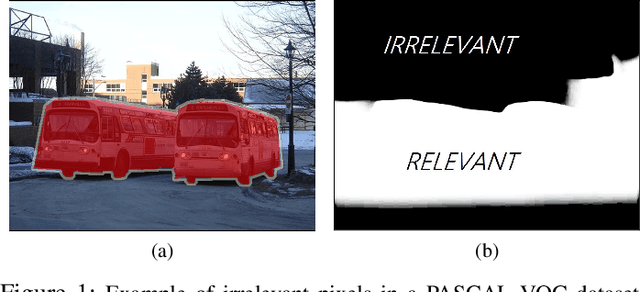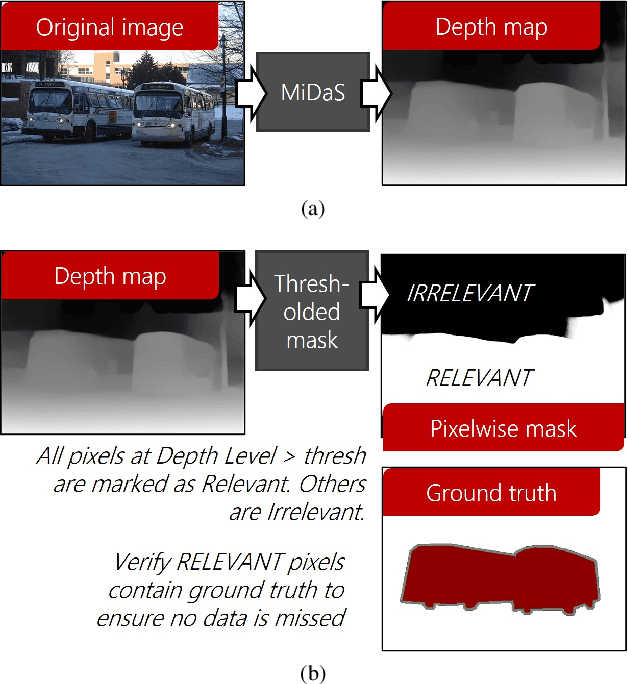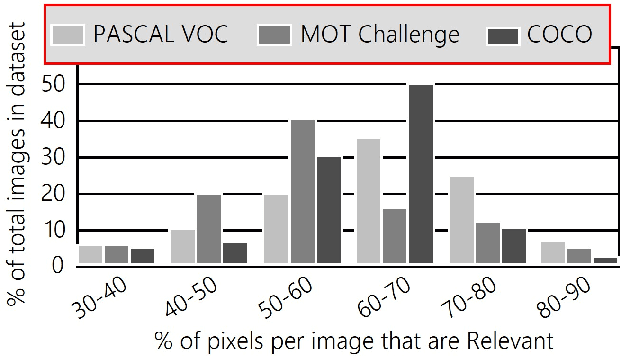Emmanuel Amobi
Irrelevant Pixels are Everywhere: Find and Exclude Them for More Efficient Computer Vision
Jul 21, 2022



Abstract:Computer vision is often performed using Convolutional Neural Networks (CNNs). CNNs are compute-intensive and challenging to deploy on power-contrained systems such as mobile and Internet-of-Things (IoT) devices. CNNs are compute-intensive because they indiscriminately compute many features on all pixels of the input image. We observe that, given a computer vision task, images often contain pixels that are irrelevant to the task. For example, if the task is looking for cars, pixels in the sky are not very useful. Therefore, we propose that a CNN be modified to only operate on relevant pixels to save computation and energy. We propose a method to study three popular computer vision datasets, finding that 48% of pixels are irrelevant. We also propose the focused convolution to modify a CNN's convolutional layers to reject the pixels that are marked irrelevant. On an embedded device, we observe no loss in accuracy, while inference latency, energy consumption, and multiply-add count are all reduced by about 45%.
 Add to Chrome
Add to Chrome Add to Firefox
Add to Firefox Add to Edge
Add to Edge